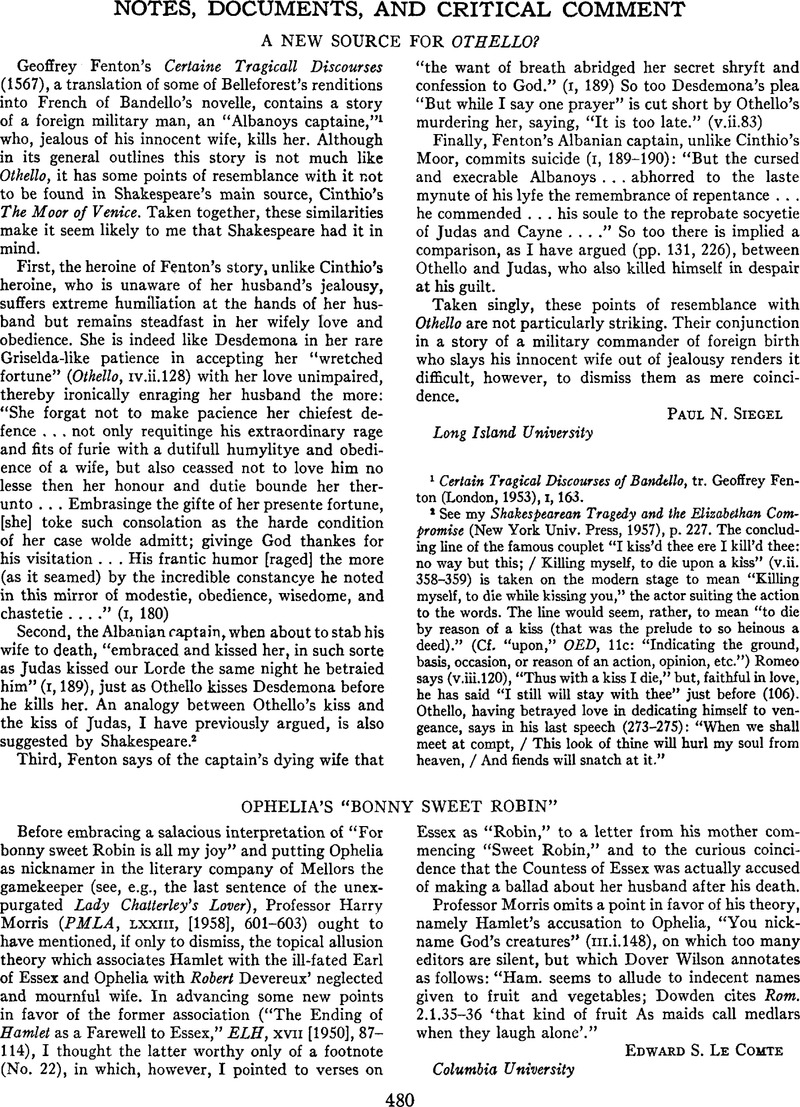No CrossRef data available.
Article contents
A New Source for Othello?
Published online by Cambridge University Press: 02 December 2020
Abstract

- Type
- Notes, Documents, and Critical Comment
- Information
- Copyright
- Copyright © Modern Language Association of America, 1960
References
1 Certain Tragical Discourses of Bandello, tr. Geoffrey Fenton (London, 1953), 1,163
2 See my Shakespearean Tragedy and the Elizabethan Compromise (New York Univ. Press, 1957), p. 227. The concluding line of the famous couplet “I kiss'd thee ere I kill'd thee: no way but this; / Killing myself, to die upon a kiss” (v.ii. 358-359) is taken on the modem stage to mean “Killing myself, to die while kissing you,” the actor suiting the action to the words. The line would seem, rather, to mean “to die by reason of a kiss (that was the prelude to so heinous a deed).” (Cf. “upon,” OED, 11c: “Indicating the ground, basis, occasion, or reason of an action, opinion, etc.”) Romeo says (v.iii.120), “Thus with a kiss I die,” but, faithful in love, he has said “I still will stay with thee” just before (106). Othello, having betrayed love in dedicating himself to vengeance, says in his last speech (273-275): “When we shall meet at compt, / This look of thine will hurl my soul from heaven, / And fiends will snatch at it.”




